Table Of Content
Artificial intelligence is showing up in workplaces in ways that are increasingly noticeable, and the numbers make it clear. From streamlining routine tasks to improving decision-making speed, AI tools are quietly influencing how work gets done every day.
Managers are reporting shorter project timelines, employees are finding ways to automate repetitive tasks, and teams across industries are seeing measurable changes in efficiency and output.
Whether it’s through smarter scheduling, automated data analysis, or enhanced collaboration, these tools are becoming part of the workflow, often without drawing much attention.
Our collection of over 80 productivity statistics offers a clear picture of where AI is being used most, how workers are engaging with it, and what the results look like in real-world settings.
AI Adoption in the Workplace
72% of companies report using AI tools in at least one department.
65% of employees say they have access to at least one AI tool to support their daily work.
48% of managers say AI has helped reduce repetitive tasks in their teams.

39% of organizations adopted AI in HR for recruiting and employee engagement processes.
57% of businesses use AI in data analysis to support decision-making.
41% of employees feel AI has made their workday more efficient.
44% of large enterprises (5,000+ employees) use AI more extensively than 27% of small businesses (under 500 employees).
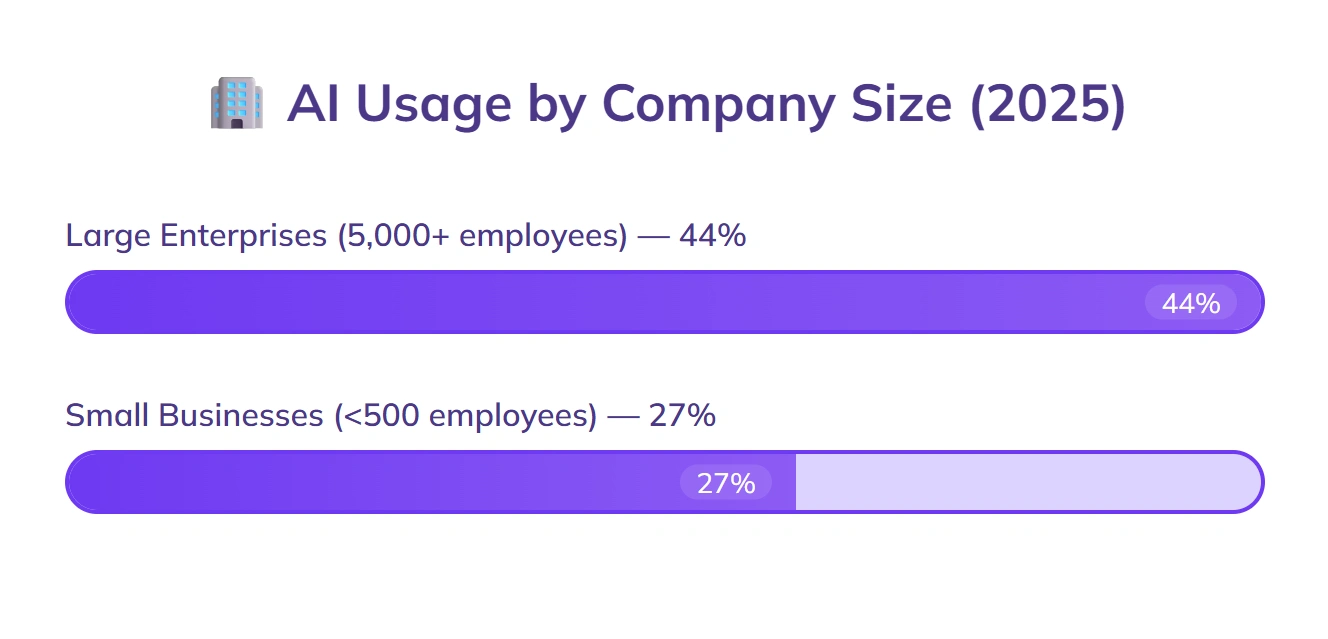
33% of companies saw a decrease in project completion time after implementing AI tools.
51% of organizations adopted AI in customer support, compared to 36% in internal processes like accounting.
28% of employees say they use AI tools daily.
52% of employees use AI tools at least weekly.
AI Video & Content Creation Productivity
Businesses using text-to-video tools report a 42% reduction in production time compared to traditional video editing workflows.
Companies adopting AI avatar generators cut presentation prep time by 38%, allowing teams to produce branded content faster.
Marketing teams leveraging AI voice cloning save an average of 6 hours per week on voiceover production.
AI scene generators reduce storyboarding time by nearly 50%, helping creators focus on final production.
Automated video editing increases content output by 3.2x, without requiring additional staff.
Small businesses creating marketing videos with AI tools report a 34% faster campaign rollout.
Using AI YouTube Shorts generators, creators publish content 27% more frequently than before.
Auto subtitle generators improve accessibility and boost viewer retention rates by 22%.
AI script generators cut content drafting time in half, enabling faster production cycles.
TikTok creators using AI-powered video tools increase posting consistency by 31%, leading to higher engagement.
Time-Saving and Efficiency Gains
59% of employees report that AI helps them complete repetitive tasks faster.
Teams using AI for scheduling meetings spend 35% less time coordinating calendars.

48% of managers say AI tools have shortened project timelines in their departments.
Employees using AI for data entry reduce errors by 27%, improving overall workflow.
41% of organizations report that AI has sped up reporting processes by at least one day per week.
Companies using AI for email filtering and prioritization save an average of 3.5 hours per employee per week.
32% of employees using AI assistants for internal communications report completing tasks faster than those not using AI.
AI-driven task automation has cut document processing times by 22% in mid-sized companies.
55% of large companies see greater efficiency gains than 38% of small businesses when using AI for workflow management.
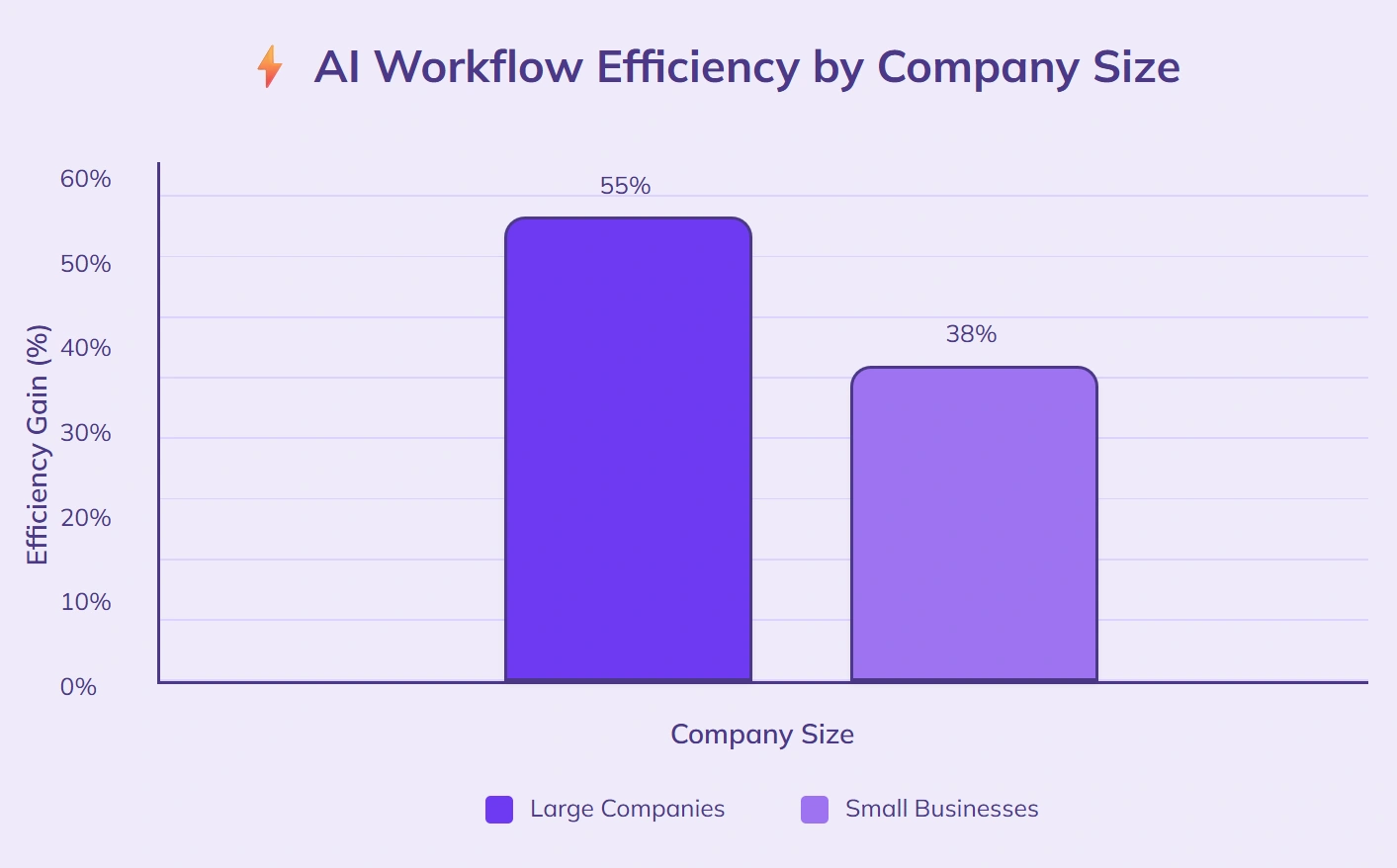
29% of employees using AI for research tasks report finishing projects more quickly.
47% of teams using AI in customer support respond faster than teams without AI tools.
Impact on Employee Productivity
62% of employees report that AI tools help them focus on higher-value tasks.
Teams using AI for internal collaboration complete projects faster than teams without AI, 41% vs 29%.

54% of managers say AI has increased overall team productivity.
Employees using AI for task prioritization complete work 28% faster on average.
49% of organizations report higher output per employee after adopting AI tools.
AI-powered analytics allow employees to make decisions 33% more quickly.
31% of companies report that employees using AI for research tasks produce higher-quality work than 22% of companies not using AI.
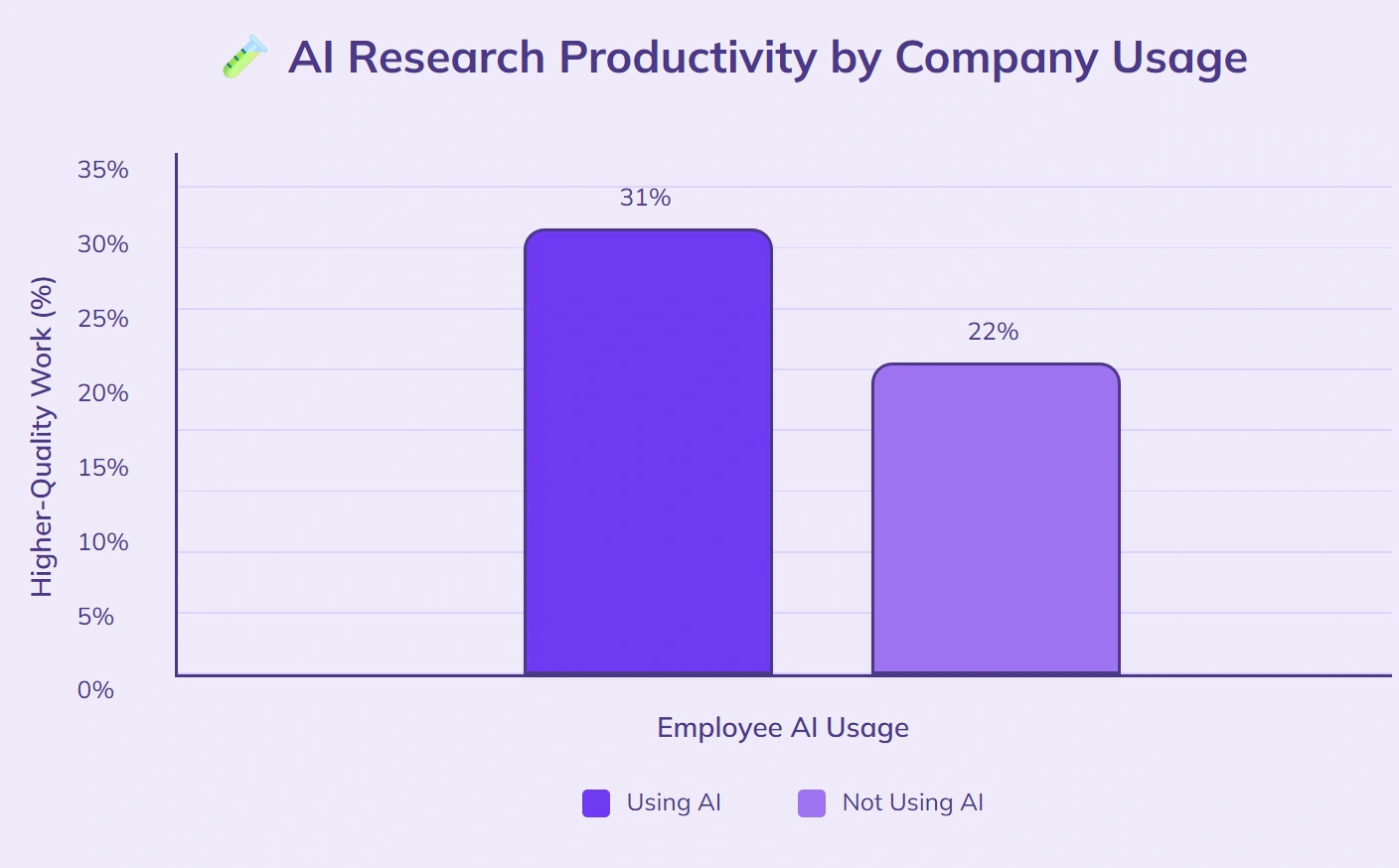
38% of employees say AI reduces time spent on repetitive reporting tasks.
46% of employees feel more productive when AI handles routine data entry.
AI-assisted scheduling reduces downtime between meetings by 24%.
53% of employees say AI helps them manage workloads more effectively, leading to fewer missed deadlines.
Automation and Task Delegation
61% of employees say AI helps automate repetitive tasks, freeing up time for more important work.
47% of organizations use AI to delegate routine tasks to digital assistants.
Teams using AI for task delegation report a 34% reduction in manual workload.
42% of managers say AI allows them to reassign low-priority tasks more efficiently.
Employees using AI to automate document management spend 29% less time on administrative work.
36% of companies have AI handle scheduling and reminders for multiple team members.
AI-driven task automation improves project handoff efficiency by 25%.
54% of large enterprises rely on AI for workflow automation, compared to 38% of small businesses.
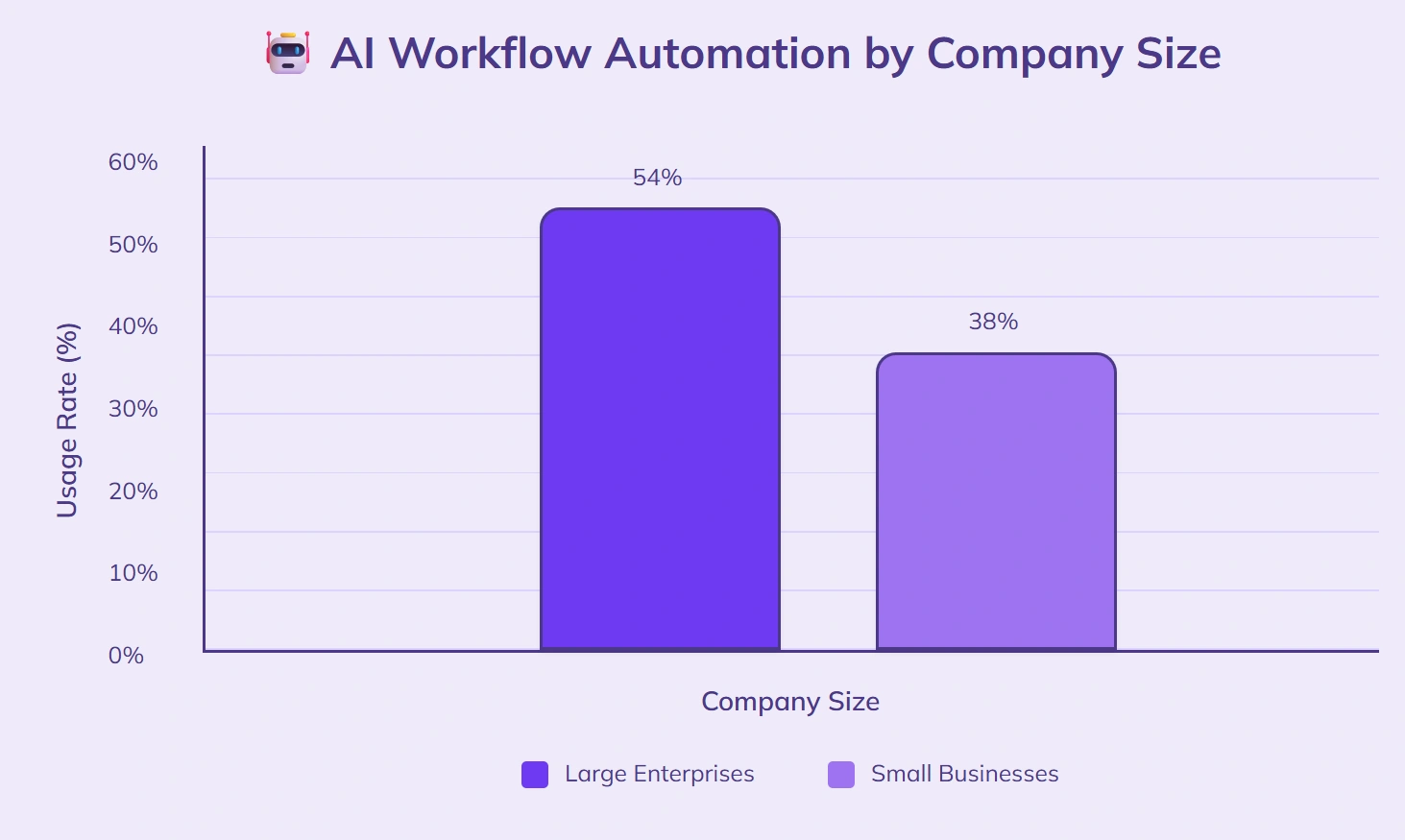
33% of employees report that delegating tasks to AI tools helps them focus on creative problem-solving.
49% of teams using AI for recurring processes complete tasks faster than teams that do not use AI.
28% of employees say AI has eliminated unnecessary follow-ups by automatically updating task statuses.
AI Tools Usage by Department
61% of marketing teams use AI for content creation and campaign optimization.
48% of HR departments rely on AI for recruiting and onboarding tasks.
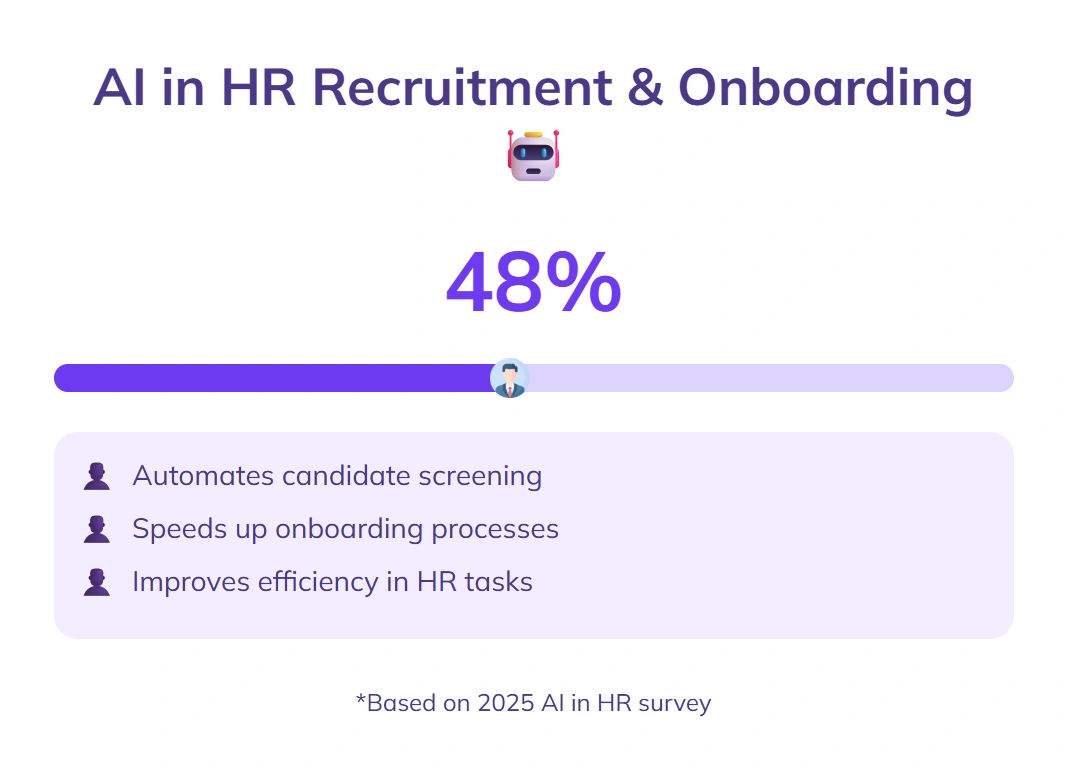
55% of finance teams use AI to automate invoice processing and financial reporting.
39% of customer support teams implement AI chatbots to handle inquiries.
42% of IT departments use AI for monitoring system performance and security alerts.
34% of sales teams use AI to prioritize leads and forecast revenue.
29% of operations teams leverage AI for inventory management and supply chain optimization.
51% of large enterprises use AI in multiple departments, compared to 36% of small businesses.
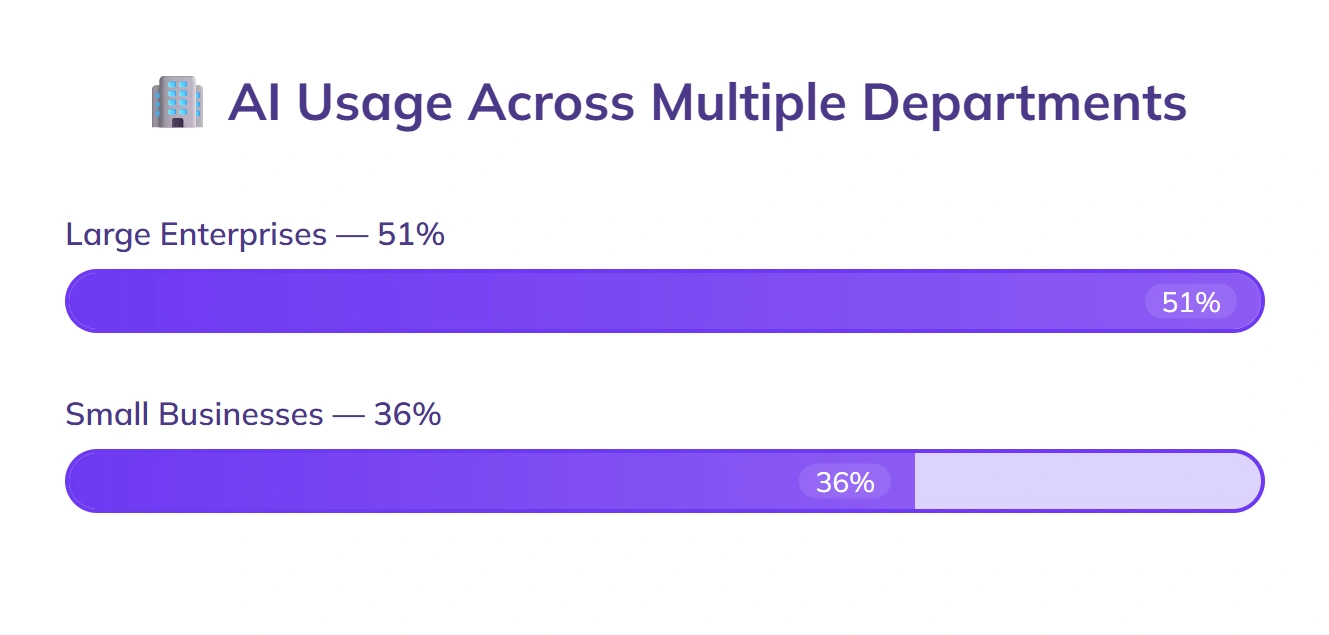
33% of legal departments adopt AI to review contracts and assist with compliance.
46% of product development teams utilize AI to analyze user feedback and improve designs.
27% of research and development teams use AI to streamline data analysis for experiments.
ROI and Business Performance Metrics
57% of companies report a measurable increase in overall productivity after implementing AI tools.
49% of managers say AI has improved project delivery times in their departments.
Businesses using AI for data analysis report 32% faster decision-making on average.
44% of companies notice cost savings from automating repetitive processes.
38% of organizations have increased revenue due to AI-assisted sales and marketing efforts.
36% of mid-sized companies see higher ROI from AI adoption compared to 28% of small businesses.
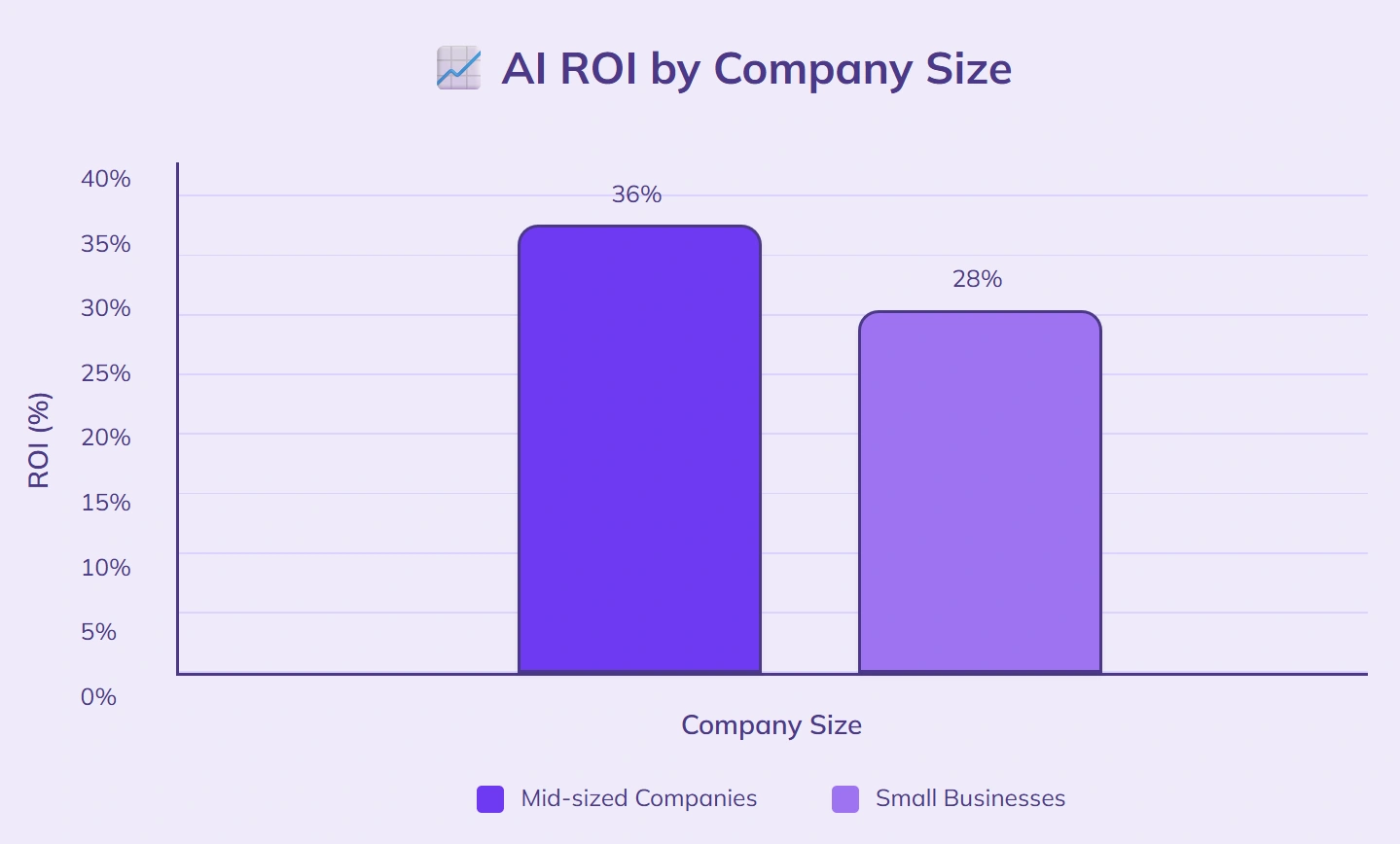
41% of companies using AI report fewer missed deadlines, improving operational efficiency.
52% of large enterprises track KPIs more accurately with AI analytics.
29% of businesses notice improvements in customer satisfaction after AI-driven support.
AI adoption has increased employee output by 27% in organizations with active monitoring of AI performance.
33% of teams report improved decision accuracy when using AI-based business insights compared to 21% of teams not using AI.
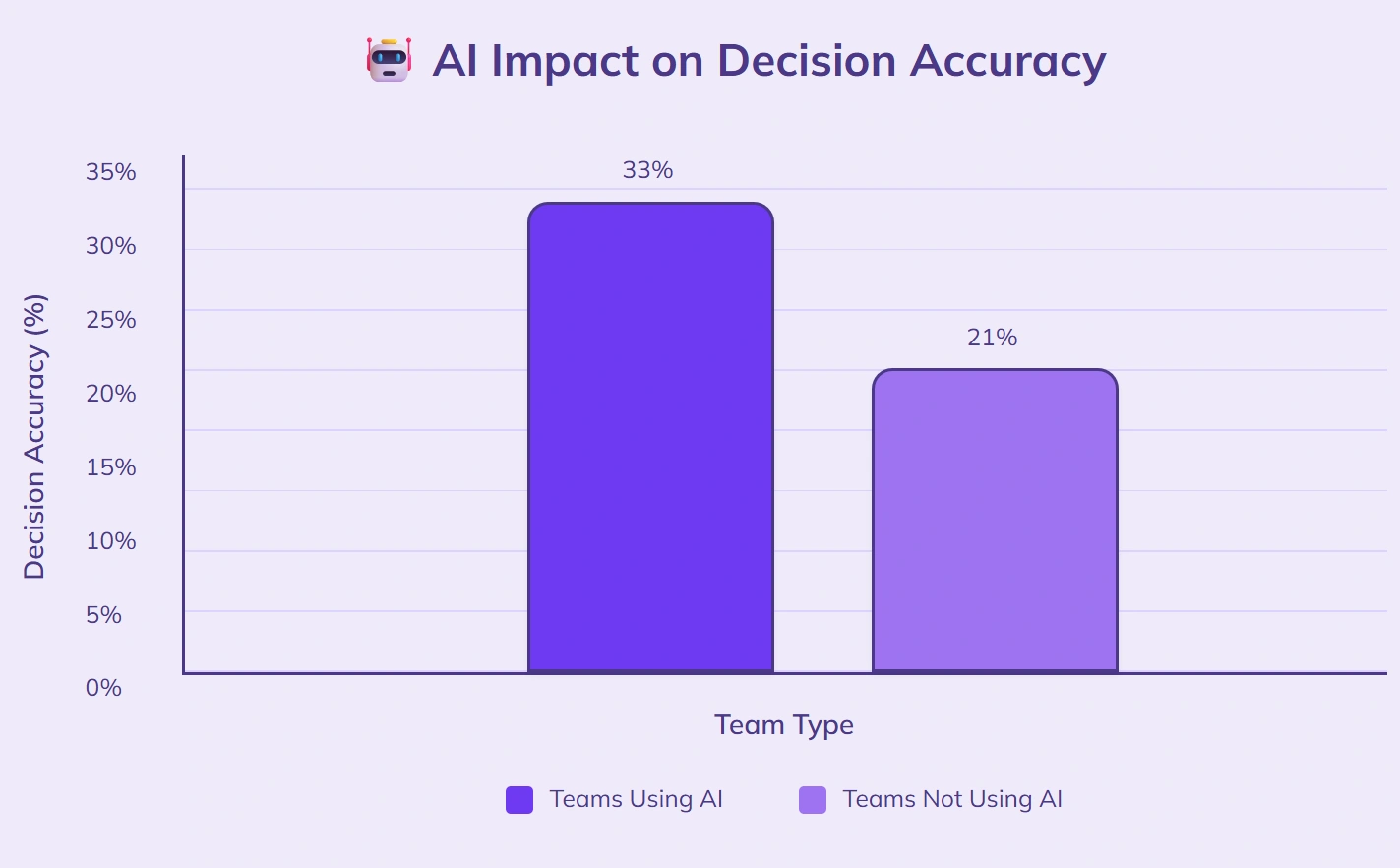
Employee Sentiment and Job Satisfaction
54% of employees say AI tools make their workday less stressful by handling repetitive tasks.
47% of employees feel more satisfied with their jobs when AI supports decision-making.

39% of workers report higher engagement when AI automates routine administrative tasks.
42% of employees say AI allows them to focus on work they find more meaningful.
33% of companies report that employee retention improved after introducing AI tools.
36% of employees feel more confident in their work when AI assists with data analysis.
51% of employees in large enterprises report higher job satisfaction than 37% in small businesses due to AI support.
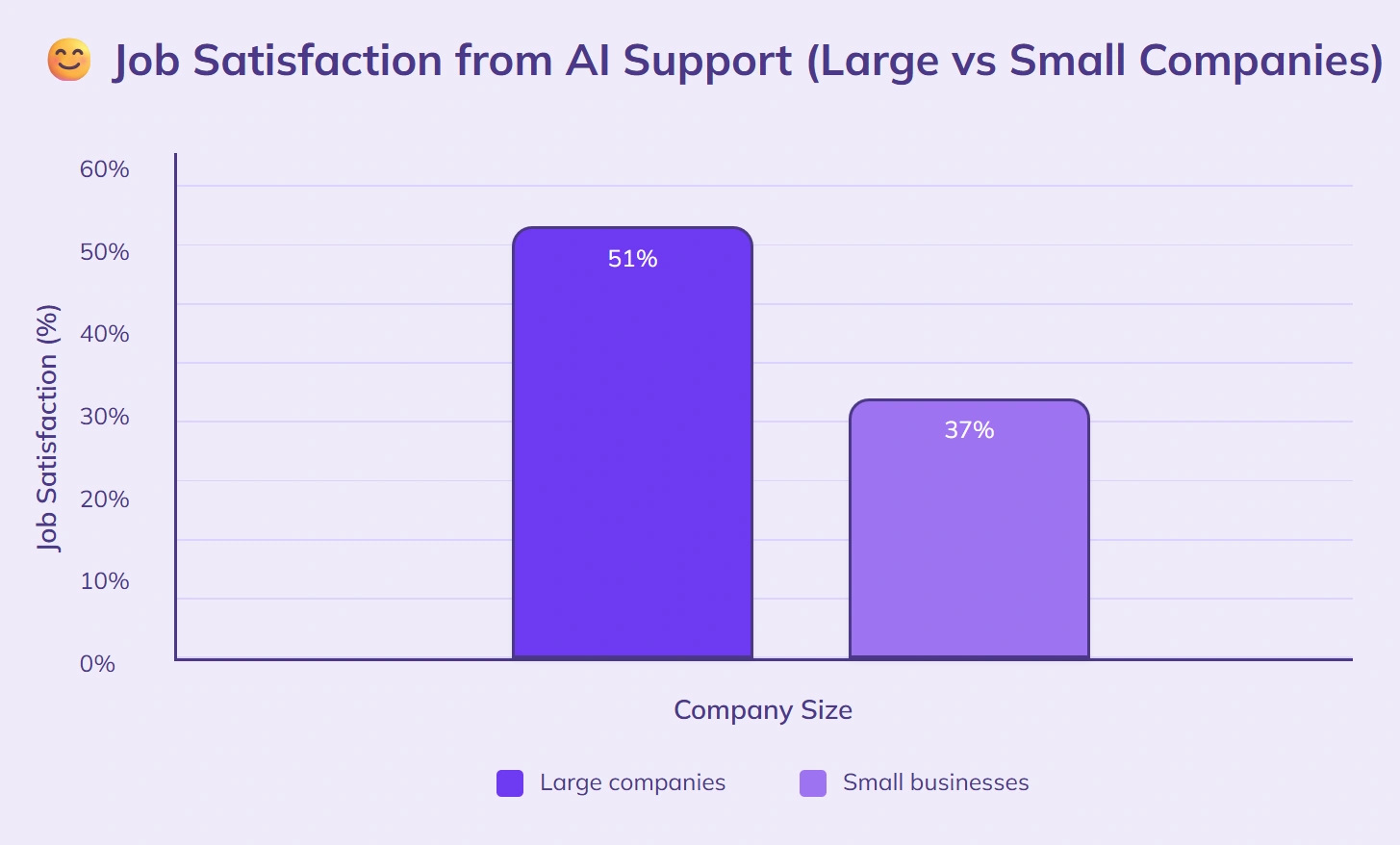
29% of employees say AI helps reduce burnout by streamlining workloads.
43% of employees feel AI improves collaboration by making communication and task tracking smoother.
27% of employees report that AI has increased their sense of autonomy in the workplace.
32% of employees in departments using AI for workflow management report higher overall morale compared to 24% in departments without AI.
The Bottom Line
The numbers tell a story that goes beyond hype. AI is present in countless workflows, and its effects are tangible, from saving hours on routine tasks to providing insights that guide smarter decisions.
While some changes are obvious, others are subtle, quietly improving productivity in ways that accumulate over time. By examining these 80+ statistics, it becomes clear that AI is not a distant concept; it’s part of how work happens today.
Understanding these trends helps organizations plan better, helps employees adapt more effectively, and gives a clearer sense of which tools deliver results.
The data offers both perspective and practical insight, showing that productivity gains are happening steadily, often in ways that make everyday work smoother and more manageable.
Create videos 10x faster and easier with Zebracat
Try it now









Comments